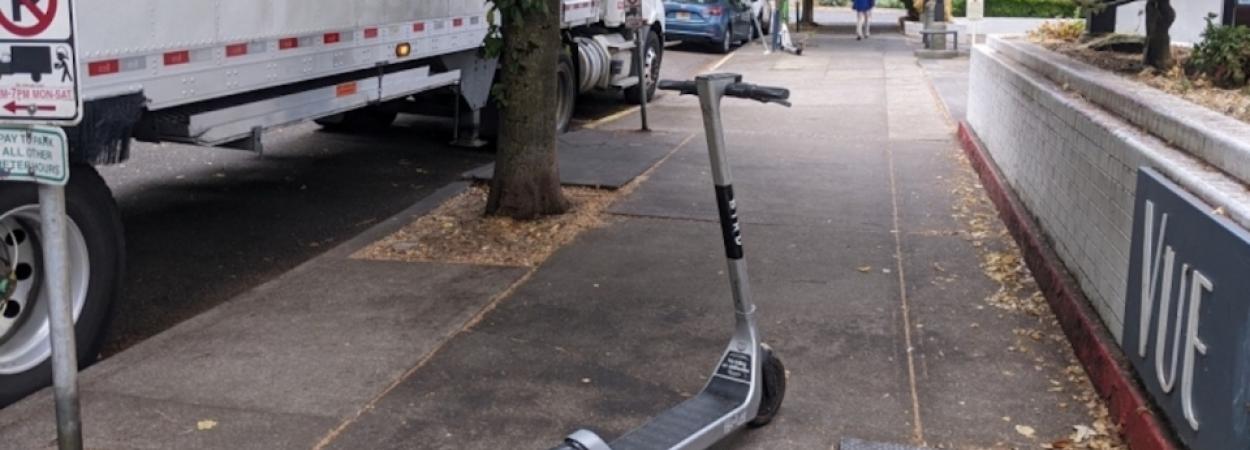Researchers Rob Hemphill, John MacArthur, Jennifer Dill and Philip Longenecker of Portland State University; Garima Desai of the University of California, Santa Cruz; Lillie Nie of the University of Southern California; and Abbey Ibarra of California State Polytechnic University-Pomona have published an article in the August 2022 issue of the Journal of Transport and Land Use.
The article, "Congested sidewalks: The effects of the built environment on e-scooter parking compliance," offers recommendations for policymakers and future research around the impacts of the built environment on electric scooter (e-scooter) parking.
With the proliferation of e-scooters in cities across the world, concerns have arisen about users parking them on sidewalks and in other public spaces. Research has looked at e-scooter parking compliance and compared compliance to other mobility devices, but until now, research had not yet examined the impacts of the built environment on parking compliance. Using a field observation dataset in Portland, Oregon, and novel GIS data, the authors attempt to understand the spatial distribution of e-scooter parking and the impact of built features on parking compliance.
The results of the study show that 76% of e-scooters observed fail at least one of Portland’s parking compliance requirements and 59% fail at least two criteria. However, compliance varies spatially and by violation type, indicating that parking compliance (or non-compliance) is dependent on features of the built environment. In particular:
- Parking compliance is significantly higher on blocks with designated e-scooter parking than blocks without designated e-scooter parking.
- A statistically significant relationship is observed between the amount of legally parkable area on a city block and parking compliance.
- Parking compliance increases with larger percentages of legally parkable area.
These findings can help policymakers prioritize dedicated e-scooter parking for blocks with limited legally parkable area.
Three of the paper's co-authors (Ibarra, Desai and Nie) were past fellows in the Transportation Undergraduate Research Fellowship (TURF) program at Portland State University.
Portland State University's Transportation Research and Education Center (TREC) is home to the U.S. DOT funded National Institute for Transportation and Communities (NITC), the Initiative for Bicycle and Pedestrian Innovation (IBPI), PORTAL, BikePed Portal and other transportation grants and programs. We produce impactful research and tools for transportation decision makers, expand the diversity and capacity of the workforce, and engage students and professionals through education and participation in research.




